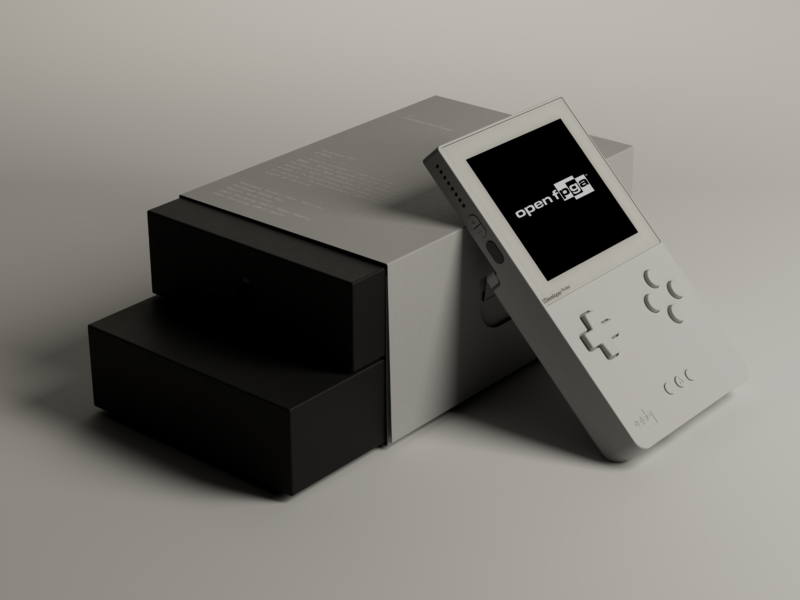

Analogue comes out swinging with Pocket 1.1 update: “We’re not f-ing around”
source link: https://arstechnica.com/gaming/2022/07/analogue-pocket-gets-future-minded-fpga-cores-update-with-mister-in-its-sights/
Go to the source link to view the article. You can view the picture content, updated content and better typesetting reading experience. If the link is broken, please click the button below to view the snapshot at that time.

Is that a core in your pocket, or... —
Analogue comes out swinging with Pocket 1.1 update: “We’re not f-ing around”
But how open is Analogue's new core-friendly "OpenFPGA" platform? We ask the CEO.
Sam Machkovech - 7/29/2022, 3:00 PM

Upon its launch in December, the portable Analogue Pocket system immediately stood out as a supercharged way to play classic portable cartridges from Game Boys. While its design borrows heavily from the Gunpei Yokoi original, its physical makeup is attractive and modern, and its mix of FPGA hardware and overkill, high-resolution IPS screen do wonders for old-school games.
But Analogue dropped the ball on part of its sales pitch: a sweeping "1.1" system update that was supposed to launch in "January 2022." Analogue never said why this patch was delayed. Was it a matter of its developers struggling to deliver? Was Analogue biding its time while shipments of the $219 Pocket hardware, and its companion $99 Analogue Dock for TVs, remained scarce, partly due to a global chip shortage?
Whatever the reason, the 1.1 update finally arrives today as a free download—and it sees Analogue taking its boldest steps yet into new territory. In a conversation with Ars Technica, Analogue CEO Christopher Taber suggested that the company's prior emphasis on console-specific FPGA systems (like the Super Nt and Mega Sg) may give way to a more open, MiSTer-like approach.
Thanks to today's new "OpenFPGA" initiative, the Analogue Pocket could become your one-stop shop for playing multiple consoles' games on a single system—assuming that certain uses are opened up.
A primer on FPGA, hardware emulation, and MiSTer
-
The Pocket's classic Game Boy mode includes an optional LCD-like green-and-black palette. There's another one that's gray and black, which is easier on the eyes. Zoom in on the image to see a ton of tiny lines drawn onto the screen to simulate an LCD effect.
-
Menu indicator for choosing either an LCD-like filter or straight-up pixels in GB Color mode.
-
Straight-up pixels.
-
LCD-like filter. (Click this picture to zoom in further and see the filter's effect.)
If you're unfamiliar with Analogue's "supercharged Game Boy," and wonder why anyone might buy such a device instead of emulating low-powered Game Boy games on smartphones or computers, I strongly suggest you rewind to my Analogue Pocket review from late 2021. That review was incomplete, however, because as I wrote at the time, "We're in the dark about one of the Pocket's most compelling announced features: official support for community-developed 'cores.'"
Analogue describes OpenFPGA as an operating system and platform for the Pocket and potential future Analogue hardware. It allows third-party developers to write and publish a "core" that can re-create any classic computer platform or console family. But "open" is relative here, so let's clarify a few points.
Advertisement
For starters, what is a core? When you put a Game Boy cartridge into a Pocket, its FPGA-fueled hardware recognizes that it's from the Game Boy, and it then parses a series of instructions (also known as a "core") to emulate the original Game Boy on a hardware level. That's different from software emulation, which tricks a combination of processor and OS to take calls originally intended for a Game Boy and treat them like they're native to something like Windows or Android.
Hardware emulation tends to deliver more accurate versions of classic games in aspects like timings and hardware limitations, all while reducing button-tap lag and supporting newer video formats like HDMI. Ars readers have seen this in systems made by Analogue, which tend to revolve around a single console family and a working cartridge slot, along with the MiSTer community, which goes a different route.
MiSTer boxes combine off-the-shelf DE-10 Nano motherboards, Altera Cyclone FPGA chips, and community-developed cores to pull off the same hardware-emulation trick, only without waiting on a single manufacturer like Analogue to, say, add support for other computer and console families. You can only run Super Nintendo and Super Famicom games on an Analogue Super Nt. On a MiSTer box, you can load dozens of cores on the same piece of hardware, ranging from popular '80s PCs like the ZX Spectrum to consoles as powerful as the first PlayStation. But you also have to contend with a completely open hardware marketplace to purchase everything you need to get a MiSTer working (though some hobbyists will sell you pre-made kits for a premium).
You can dump floppy discs or cartridges and load their games and apps onto any working MiSTer core, but as an open platform, MiSTer doesn't mandate how you get or load games. Officially, Analogue systems have required physical cartridges, but longtime Analogue programmer Kevtris previously published "jailbreak" firmware for the company's systems that allows users to put game ROMs onto an SD card and play them that way. Kevtris has not confirmed any plans to do the same for Analogue Pocket.
Recommend
About Joyk
Aggregate valuable and interesting links.
Joyk means Joy of geeK